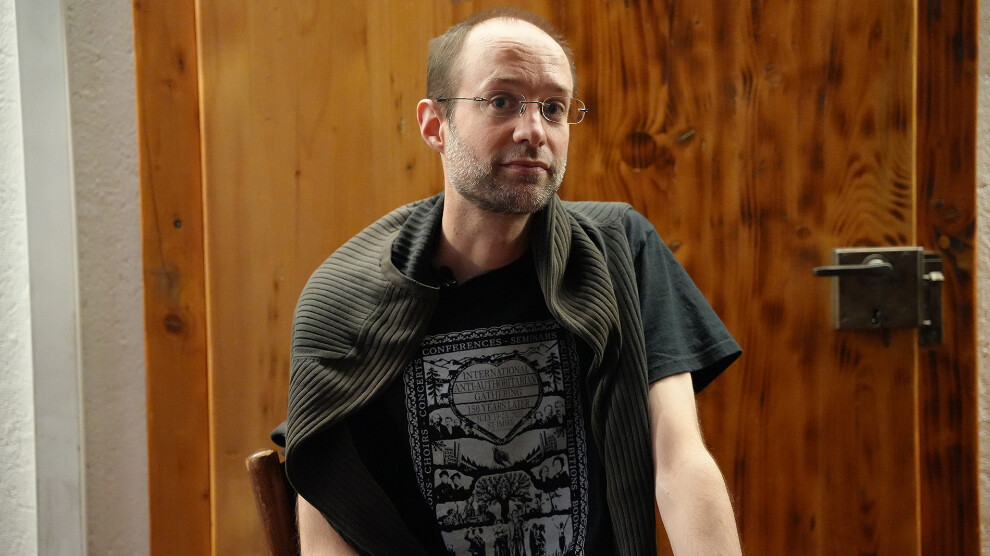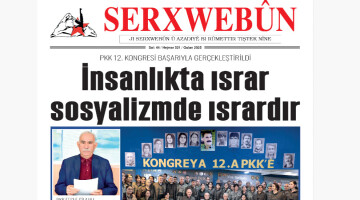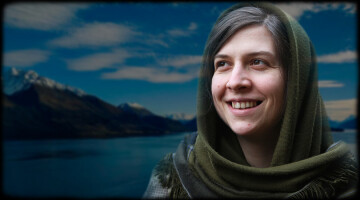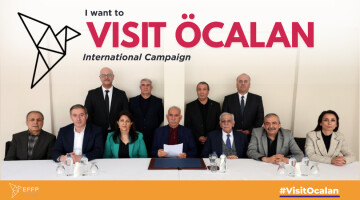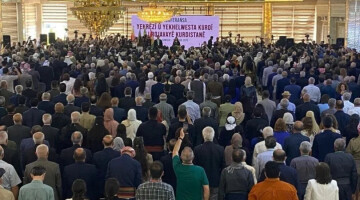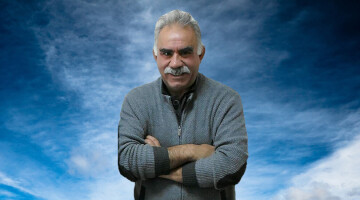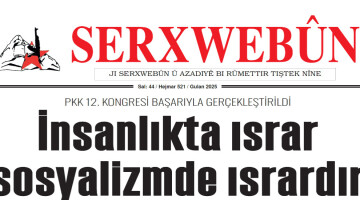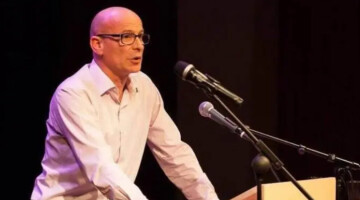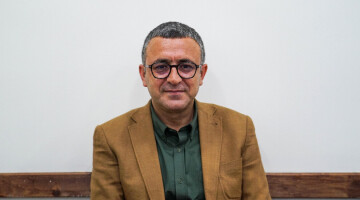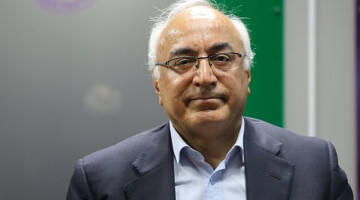When social ecology is mentioned, the first name that comes to mind is Murray Bookchin. The ideas developed by the famous American thinker and theorist Murray Bookchin, who died in 2006, still maintain their importance in terms of today's political and social philosophy.
ANF talked about these two thinkers with Swiss historian and environmental activist Vincent Gerber, known for his work on Bookchin.
For a better understanding, can you tell us a bit about the concept of Social ecology, which Murray Bookchin put forward as a theory and later turned into a movement?
Social ecology, as you mentioned, is an ecological movement initiated by Murray Bookchin in the 1960s, which argues that the roots of the ecological problem are based on social problems. Solving the ecological problem is not only a matter of protecting nature, but also a matter of resolving the issues of social domination that exist among us. In other words, the social problem and the ecological problem are of the same nature and, simply put, should be solved together.
You say that Kurdish People's Leader Abdullah Öcalan was inspired by the thoughts of Murray Bookchin. What is the connection between Öcalan and Bookchin in the context of political and social philosophy?
Abdullah Öcalan wrote a letter to Murray Bookchin in 2004. There were a few letters exchanged between them. However, Bookchin was quite old at the time and died a couple of years later. That's why this exchange of information could not continue for a long time. There was a political connection where Öcalan was looking for a way to make a revolution without creating a new state and, inspired by Bookchin's political ideas about democratic confederalism, he was trying to establish a kind of confederation of communes tied together by ecological principles.
Could you elaborate on Murray Bookchin's libertarian municipalism paradigm for a better understanding of democratic confederalism?
Libertarian municipalism is a political aspect of Murray Bookchin's thought. In his view, society should be decentralized, politically decentralized, and then have as many politically autonomous communes as possible. These communes can create their own laws and constitutions and band together to share resources. It is a matter of defending and creating a specific network of communes that will form a structure without recreating a centralized state administration. In other words, it is a matter of creating a confederation without recreating a centralized state.
How did Bookchin's libertarian municipalism affect the Democratic Confederalism paradigm of Öcalan? And what are the main similarities and differences between these two political approaches?
According to what I know, Öcalan read Bookchin while he was in prison and was inspired by his theory. Instead of establishing a Kurdish nation-state, he looked for other alternatives. Inspired by Bookchin's thoughts, he aimed to develop an alternative based on making a revolution in the lowest segment of society without waiting to take power by force of arms.
The idea here is to begin organizing assemblies and direct democracy wherever possible, so that people feel comfortable making decisions and creating democratic institutions without expecting to be supported or empowered by the state. In this sense, it seems that there are influences from Bookchin's texts.
However, there are differences as well. Especially since the system being established in Rojava takes place in the context of war and political difficulties, it seems that the desired system has not been fully built.
Bookchin had a very radical vision of no elected politicians, everyone taking part in democratic assemblies within the commune.
I have never been to Rojava, but from what I understand and from the information I have, there is still less independence for the communes. Considering what has happened, there also seems to be a tension between the desire for centralization and the need for democracy to allow everyone to express themselves.
Again, while Bookchin focused more on ecological problems, Abdullah Öcalan focused more on feminism or women's freedom. I think it is really good and right that Öcalan supports this issue of gender equality with practices such as co-presidency and quotas. This is another difference between Bookchin's and Abdullah Öcalan's paradigms.
In the academic articles you wrote in the early periods of the Rojava Revolution, you pointed out that Bookchin's ideas sprouted and were implemented in Rojava. Do you still maintain this thought today?
Yes, Bookchin's ideas continue to be implemented in Rojava, and I think this is implemented on the basis of the idea of democratic confederalism.
It is clear that this situation is not easy due to the situation in Rojava. Even though I don't know exactly what happened in Rojava, I know that there is a social contract and there is a desire to go further in the system that is wanted to be built, especially through the organization of elections. Even though the system was not implemented as desired, I think the intention was always to implement democratic confederalism. Once you get a taste of democracy or direct democracy, it is not easy to give up on it.
Although these ideas are not the same everywhere, I think they are being developed and implemented in Rojava. Although the system implemented is not what Bookchin imagined, it is not completely far from that. Bookchin's ideas will always continue to be on the field.
So, what is the importance of Kurdish People's Leader Abdullah Öcalan's Democratic Confederalism paradigm for today?
I think that Abdullah Öcalan's paradigm of Democratic Confederalism is very appropriate and represents great power because he questions the systems that have existed until now by proposing a system.
There is great wisdom and intelligence in challenging the old system and saying that it is not working and something else must be found. I think this is very important. The way it is promoted and shared is very inclusive, allowing many different people to have their say and be connected to each other. It also provides the freedom to express their culture, religion and many other things to all peoples, including the Kurdish people. According to Bookchin, this is the purpose of democracy: to allow all voices to come together under one roof, regardless of nationality, culture, history and similar factors. To put everyone on an equal footing and Öcalan saw and understood this very well. I think it is very appropriate for Abdullah Öcalan to follow this path.
Abdullah Öcalan's paradigm of Democratic Confederalism also influenced the radical left in Europe, which had long been devoid of new ideas. We can say that not much progress has been made in this part of the world in decades since the Zapatistas. I think that's one of the great strengths of this movement. And now, in a very vulnerable situation, surrounded by forces that want to stop him, he just wants to survive.

